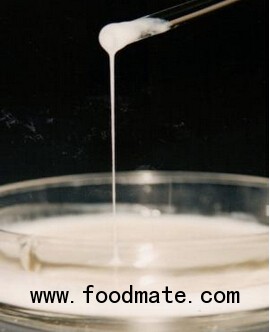Oregon State University (OSU) microbiologists have created a new dairy and food thickener using a natural bacterium that can add probiotic values to food products.
The researchers had started work on the bacterium since the early 1990s, when an OSU microbiologist discovered Ropy 352, a novel polymer that could rapidly thicken milk.
Ropy 352 is produced by a non-disease-causing bacterium, and lends a smooth, thick, creamy property to fermented foods. The polymer could be used in producing sour cream, yogurt, kefir, buttermilk, cream cheese and artisan soft cheeses..
OSU microbiologist Janine Trempy said: "This is one of many naturally occurring, non-disease-causing bacterial strains my research program isolated and studied for years.
"We discovered that this bacterium had a brand-new, never-before reported grouping of genes that code for a unique polymer that naturally thickens milk. In basic research, we've also broadened our understanding of how and why non-disease-causing bacteria produce polymers."
The polymer is composed of natural compounds and offers a mildly sweet taste. It is capable of improving the sensory characteristics of low-fat or no-fat foods.
Trempy added: "There are actually very few new, non-disease-causing bacterial strains that produce unique polymers with characteristics desirable and safe for food products. In the case of a dairy thickener, for instance, a bacterium such as Ropy 352 ferments the sugar in the milk and produces a substance that changes the milk's properties."
Apart from thickening whole and non-fat milk, lactose-free milk, coconut milk, rice milk, and other products designed for use in either dieting or gaining weight, the polymer can also have applications in the thickening of pharmaceuticals, dietary supplements, herbal products, fruit juices, cosmetics and personal care products.






